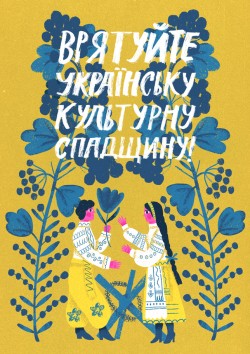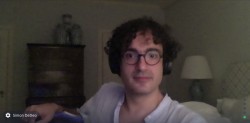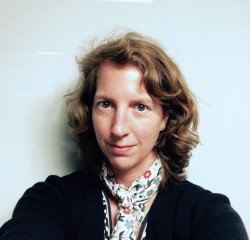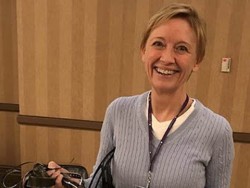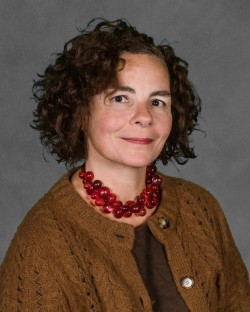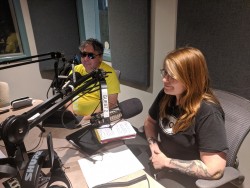
~~Augmented Humanity is currently on indefinite hiatus~~
Our guests on this podcast are modern explorers working at the intersection of technology and the humanities. They help us to understand ourselves and the worlds we create in this digital age. They are thinkers, creators, makers and academics, all working in diverse fields. Augmented Humanity is produced in partnership with KUNM FM, University of New Mexico's public radio station.
Together we discuss what we can understand about ourselves and others with the use of this technology; how the technology changes us or advances us; the implications for public or academic humanities; and the best tools and practices for applying this technology.
Subscribe to Augmented Humanity or Listen in a Player
Augmented Humanity on YouTube (full hour-long programs)
Art & Light
Imagine… light as an artistic medium, deployed in both sculptural and painterly ways to transform rooms, theaters, and even city-scaled landscapes. Now imagine this medium– expressed in brightness, color, reflections and shadows– changing its qualities in a slow, meditative interplay - not in response to the artist’s set intentions, but in response to data derived from nearby, like ambient sound or from impossibly far, like data on solar winds or underground rivers.
This month we’re joined by Morgan Barnard. Morgan Barnard is the chair of the Media Arts and Technology department at New Mexico Highlands University. As a new media artist, he investigates how data, sound and light intersect to initiate meditative states, explore the nature of perception, and raise awareness about our intimate relationship to the environment. He works primarily in light-based media such as projection, screens and lights… navigating the links between cinema, generative media, interactivity and data visualization.
Water Justice & Technology
Imagine… as the world gets hotter and fresh water becomes more scarce, AI systems whose roots lie in racist algorithms control access to your water, and water security is guaranteed only for those who can afford it. Averting this dystopian future demands we strive to move beyond our assumptions around racism, capitalism, consumption, collective responsibility and the desirability of engineering our way out of the climate crisis.
This month we’re joined by Dr. Theodora Dryer, the research lead for Climate + Water at the AI Now Institute, and research assistant professor at New York University’s Tandon School of Engineering. We’re also joined by Dr. Amrah Salomón, an assistant professor of English at the University of California Santa Barbara and a founding member of the Center for Interdisciplinary Environmental Justice. Dr. Dryer and Dr. Salomon, among others, collaborated to produce the report Water Justice and Technology, covering topics on both North and Central America.
Water Justice & Technology Ep 1: Collaboration and Problematizing
Water Justice & Technology Ep 2: Anxiety!
Water Justice & Technology Ep 3: Alternative Futures & Algorithms of the Past
Digital Archaeology
4 Jul 2022
Imagine… you control a whole community of Romans. You urge them through their daily business, you kill them off here and there, and when their society collapses into chaos or authoritarianism, you wipe it out and start again with a brand new community. You’re not a monster raising ancient zombies or causing human suffering; you’re a digital archaeologist, using agent models to study the patterns and networks that emerge from archaeological research.
This month we’re joined by Dr. Shawn Graham. Dr. Graham is a professor at Carleton University, where he teaches digital archaeology and digital humanities. Recent work includes studying the online trade in human remains; developing graph-theoretic representations of historic events; and publishing two books, Failing Gloriously and an Enchantment of Digital Archaeology. He is the founder and editor of the open access journal, Epoiesen: A Journal for Creative Engagement in History and Archaeology.
Digital Archaeology Ep 1: The Machine Stares Back
Digital Archaeology Ep 2: Archaeo-gaming
Digital Archaeology Ep 3: Zombie vs. Golem
Digital Archaeology Ep 4: Next Gen DH
An Enchantment of Digital Archaeology »
Failing Gloriously and Other Essays »
Mapping the Gay Guides
6 Jun 2022
Imagine…the year is 1965. The place is your town. What does it look like to be gay, there, at that time? Where do you go to find people like you? Where is it safe to be you? How does that change as the years pass? Now we can explore this not so ancient history through the lens of Bob Damron's Address Book, an annual guide for gay people in the US.
On this program we’re joined by Dr. Amanda Regan and Dr. Eric Gonzaba, co-creators of the NEH-funded digital history project Mapping the Gay Guides. Dr. Regan teaches history at Clemson University, and Dr. Gonzaba teaches American Studies at California State University in Fullerton.
Mapping the Gay Guides Ep 1: Time, Ethics, Truth
Mapping the Gay Guides Ep 2: Data As History
Mapping the Gay Guides Ep 3: Democratization of Data
Saving Ukrainian Heritage
2 May 2022
Imagine… heroes who appear when catastrophe strikes your country, threatening your cultural institutions. Rapid response teams of researchers who can help you save your collections and other data while aid organizations are busy saving lives. Just such a team, thousands strong, all ages and across the globe, has formed to support Ukrainian libraries, archives, and museums in the wake of the Russian invasion.
On this program we’re joined by Anna Kijas and Quinn Dombrowski, two of the founders of SUCHO, Saving Ukrainian Cultural Heritage Online. Anna is Head of the Lilly Music Library at Tufts University. Quinn is the Academic Technology Specialist in the Division of Literatures, Cultures, and Languages, and in the Library, at Stanford University.
Saving Ukrainian Heritage Ep 1: Data Rescue!
Saving Ukrainian Heritage Ep 2: It Takes a Community
Saving Ukrainian Heritage Ep 3: Open Source, Open Access
Wise Cities
4 Apr 2022
Imagine…cities rolling out solutions to enhance culture; facilitate urban regeneration; promote public participation; and democratize public space. Diverse citizens helping to steer the human-friendly transformation of their towns, selectively using the most sustainable and sensible tech interventions to advance these goals.
On this program we’re joined by Daniel Latorre, founder and director of The Wise City. Daniel is an advocate for digital placemaking with a focus on community engagement and for city leaders going beyond “smart” cities.
Wise Cities Ep 1: Function vs. Dysfunction
Wise Cities Ep 2: All Technology is Political
Wise Cities Ep 3: Why? Why Not? Media Ecology
Electronic Literature
7 Mar 2022
Imagine…beautiful poems that never end. Books that are written for you, specifically, as you read them. Strangers collaborating to create nuanced stories with thrilling plots. These marvels, along with many other startling manifestations of electronic literature, may revolutionize how we think about reading and writing.
On this program we’re joined by Mark Marino and Leonardo Flores, both with the Electronic Literature Organization. Leonardo Flores is Chair of the English Department at Appalachian State University. Author and critic Mark Marino recently published Critical Code Studies at MIT Press, and produces crowdsourced literature with Meanwhile Netprov studios.
Electronic Literature Ep 1: Expression and Computation
Electronic Literature Ep 2: Ethics, Trust & Funnels
Electronic Literature Ep 3: Who's the Author & When Does It End?
Electronic Literature Ep 4: Origin Stories, Getting Started
Electronic Literature Organization »
Social Justice in DH (Digital Humanities)
7 Feb 2022
Imagine…a global community of humanists, finding new ways to represent human migration, language, labor, relationships and more. Telling new stories from diverse perspectives, while supporting and mentoring others in implementing cutting edge methodologies. As this dream becomes reality, a promise emerges of better understanding our complex world.
On this program we’re joined by the co-editors of Reviews in Digital Humanities, Dr. Roopika Risam and Dr. Jennifer Guiliano. Dr. Risam is the Chair of Secondary and Higher Education and Associate Professor of Education and English at Salem State University. Dr. Guiliano is an Associate Professor of History, Native American and Indigenous Studies, and American Studies at Indianapolis University.
Social Justice in DH Ep 1: Positive Review Culture
Social Justice in DH Ep 2: Expanding Definitions and Access
Social Justice in DH Ep 3: Data Sovereignty
Social Justice in DH Ep 4: Origin Stories and Cultural Shifts
Reviews in Digital Humanities (open access journal) »
Digital Ethnic Futures Consortium »
Digital Black Atlantic (open access journal) »
Indigenous A.I.
3 Jan 2022
On this program we’re joined by Michael Running Wolf (Northern Cheyenne, Lakota and Blackfeet), who was raised in a rural prairie village in Montana with intermittent water and electricity; naturally he has a Master’s of Science in Computer Science, is a former engineer for Amazon’s Alexa, and is an instructor at Northeastern University. He was raised with a grandmother who only spoke his tribal language, Cheyenne, which like many indigenous languages is near extinction. By leveraging his advanced degree and professional engineering experience, Michael hopes to strengthen the ecology of thought represented by indigenous languages.
Indigenous A.I. Ep 1: Sovereignty and VR
Indigenous A.I. Ep 2: Open Source and Avoiding Language Darwinism
Indigenous A.I. Ep 3: Ecology, Partnerships and Trust
Reimagining Digital Collections
6 Dec 2021
On this program we're joined by Liz Neely, the curator of Digital Experience at the Georgia O'Keeffe Museum in Santa Fe. The museum is working on a series of projects to develop new ways of revealing connections between art, archival and historic home collections to facilitate a broader exploration and study of Georgia O'Keeffe. These projects imagine access to collections through discovery, storytelling and ultimately a digital catalog raisonné. Liz is a human-centered strategist focused on forming engaging experiences for museum audiences while designing sustainable organizational workflows.
Reimagining Digital Collections Ep 1: Acccess and Authoritativeness
Reimagining Digital Collections Ep 2: Making Connections
Reimagining Digital Collections Ep 3: Reliability and Inclusion
Misinformation on Social Media
1 Nov 2021
Imagine... widespread consensus around scientific facts and historic events. Online interactions based on mutual respect and dignity. Systems that discourage people from being wrong on the Internet. How might we get there, and do we really want to?
On this program we're joined by Arushi Saxena, the founder of the EkMinute project, an initiative that promotes digital literacy and better forwarding behavior on WhatsApp and beyond. Arushi is also the product marketing manager for Misinformation and Civic Integrity at Twitter, where she works on spreading awareness about platform features designed to minimize the spread of misinformation.
Misinformation on Social Media Ep 1: Misinfo vs. Disinfo
Misinformation on Social Media Ep 2: Who's to Judge?
Misinformation on Social Media Ep 3: Responsible Tech
Misinformation on Social Media Ep 4: The Algorithm
Harvard: Managing Misinformation »
Digital Black Feminism
4 Oct 2021
Imagine a world where we actually listen to black women. When we do, we can see how the technological ecosystems built by black feminists over centuries of creatively surviving overwhelming oppression can give rise to new digital spaces that counter the toxic patriarchal hegemony. A new book from Dr. Catherine Knight Steele lays out the arguments in favor of centering Digital Black Feminism with regard to technology.
This month, we're talking with Dr. Catherine Knight Steele, an Assistant Professor of Communication at the University of Maryland - College Park. Dr. Steele was the Founding Director of the African American Digital Humanities Initiative and currently directs the Black Communication and Technology lab as a part of the Digital Inquiry, Speculation, Collaboration, & Optimism Network.
Digital Black Feminism Ep 1: Skillsets and Enclaves
Digital Black Feminism Ep 2: The Good, the Bad and the Public
Digital Black Feminism Ep 3: Optimism, Joy and Signifying
Introducing Holly+
6 Sep 2021
Imagine: A musical colleague who can master any style, yet performs in a distinctive voice. When you share your composition, you’re immediately rewarded with a memorable performance. Don’t go looking on Craigslist for this ideal bandmate and collaborator -- it’s Holly+, an AI musician created with machine learning.
On this program we're talking with composer, musician, and sound artist Holly Herndon, whose most recent full-length album Proto was released in 2019. We’re also talking with Mat Dryhurst, a musician, researcher and artist, who also teaches at NYU’s Clive Davis Institute of Music, Strelka Institute and the European Graduate School and hosts discussions with figures shaping 21st century culture on the Interdependence podcast.
Holly+ Ep 1: I Sing the Body Electric
Holly+ Ep 3: Secret Sauce, Collaboration, Ubiquity and Getting Paid
Captain Hoff & the Tech Trends Changing Everything
2 Aug 2021
Imagine: A world where cities run under the benign guidance of an AI; robots plant and harvest our food; and nanotechnology performs what seems like medical miracles. People hack their own genes, connect their brains to the internet, and implant tech to experience the world in ways humans have never known. Travel, and even living on other planets is no longer a fantasy, but a matter of affordability. While these scenarios seem lifted from a sci-fi novel, this technology is currently under development, and holds the potential to fundamentally transform what being human means.
On this program we’re talking about The Five Forces That Change Everything with author Steve Hoffman, aka Captain Hoff, the CEO of Founders Space, named one of the Forbes “Top 10” startup accelerators. Steve is also a venture investor and serial entrepreneur.
Captain Hoff & the Tech Trends Changing Everything Ep 1: The Five Forces
Captain Hoff & the Tech Trends Changing Everything Ep 2: Equitable Distribution
Captain Hoff & the Tech Trends Changing Everything Ep 3: Robot Farmers and HR Bots
Captain Hoff & the Tech Trends Changing Everything Ep 4: Solutions
Civic Tech and Public Art
5 Jul 2021
Imagine: citizens working with the government to develop technology that makes their community a more joyous and equitable place to live. New Mexicans are exploring the promise of the civic tech movement, most recently at the DataFest ArtQuest, sponsored by the City of Albuquerque and the New Mexico Foundation for Open Government.
On this program we’re talking with Eric Renz-Whitmore, a lead organizer of the DataFest: ArtQuest event, and Karen Mazur, Public Art Project Coordinator and Database Administrator for the city of Albuquerque Public Art Program.
Civic Tech and Public Art Ep 1: Datafest and Hackathon
Civic Tech and Public Art Ep 2: Open Data
Civic Tech and Public Art Ep 3: Data Stories and Equity
Civic Tech and Public Art Ep 4: Next Steps
Price Lab: Digital Humanities Podcasting
7 Jun 2021
Imagine… a regular, lively podcast featuring discussions with the foremost explorers of the intersection of technology and the academic humanities, to explore questions around tools, methods, and values. It’s not what you’re thinking…. it’s the Price Lab Podcast, a production of the Price Lab for the Digital Humanities, at the University of Pennsylvania.
On this program we’re talking with Julie Napolin, who helped create the Price Lab podcast, and with Sarah Milinski, the Price Lab program manager and podcast producer. Price Lab Podcast is a series focused on the people who are building, using, and critiquing the digital tools and techniques that are transforming the humanities in the 21st century.
Digital Humanities Podcasting Ep 1: Price Lab at UPENN
Digital Humanities Podcasting Ep 2: Capacious DH
Digital Humanities Podcasting Ep 3: Academe and Activism
Other Names for the River
3 May 2021
On this we’re program we're joined by the artists behind There Must be Other Names for the River -- Dylan McLaughlin, Marisa Demarco and Jessica Zeglin. This online art installation, hosted by the University of New Mexico Art Museum, guides visitors along the length of the Rio Grande where they hear the songs of singers emerging from points along its 1,800 mile length.
Other Names for the River Ep 1: Live and Online
Other Names for the River Ep 2: Grief, Art and Time
Other Names for the River Ep 3: Connections
Other Names for the River Ep 4: Faith in Each Other
Extended Reality (XR) - Indigenous Language & Culture
1 Apr 2021
On this program, we're joined by MoniGarr, the founder of MoniGarr.com, a small tech company based in the Akwesasne Indian Reservation. MoniGarr develops XR -- aka extended reality -- solutions and custom software, with a focus on indigenous language revival, futurism and culture.
XR Indigenous Language & Culture Ep 1: There's No Shame In Being an A.I.
XR Indigenous Language & Culture Ep 2: Extending Reality with Native Spaces
XR Indigenous Language & Culture Ep 3: Nothing About Us Without Us
Remote Religion
1 Mar 2021
Imagine… entering a sacred space, seeing friends, family and neighbors, and lifting your voice together in prayer and song. Imagine joining together to celebrate holidays, grieve loss, and serve your community. When in-person worship in New Mexico, and nationwide, was reduced or ended with the outbreak of the pandemic, many religious communities have brought their observances online -- including services, holiday celebrations, life events and charitable work.
On this program, we’re joined by Rabbi Harry Rosenfeld, the rabbi at Congregation Albert in Albuquerque and the Reverend Bob LaVallee, a minister at the First Unitarian Church of Albuquerque, two religious communities that have moved completely online during the pandemic.
Remote Religion Ep 1: Intimate and Sacred Online Spaces
Remote Religion Ep 2: Virtual Lifecycle Events
Remote Religion Ep 3: Celebration and Song
Culture Connects Toolkit with Littleglobe
1 Feb 2021
On this month's podcast, we're joined by Chris Jonas, co-founder and Executive Director at Littleglobe, as well as Katy Gross, Littleglobe's Deputy Director and Education Director. Littleglobe’s mission is to create collaborative art, encourage community capacity, and foster life-affirming connections across the boundaries that divide us. We'll be talking about their new Culture Connects Toolkit, a flexible and ethical approach to digital storytelling based on years of community engagement. New episodes every Monday.
Culture Connects Toolkit Ep 1: Storytelling to Move Hearts
Culture Connects Toolkit Ep 2: Media, Ethics & Wellness
Culture Connects Toolkit Ep 3: Redesigning the Paradigm
Culture Connects Toolkit Ep 4: Trauma, Trust and Transparency
Advanced Humanities Institute at SFI
4 Jan 2021
Join philosopher David Kinney, an Omidyar Postdoctoral Fellow at The Santa Fe Institute, and SFI External Professor Simon DeDeo, a cognitive scientist at Carnegie Mellon University who along with Carrie Cowan, SFI’s Director of Education, are leading a new effort called “Foundations and Applications of Humanities Analytics”, which seeks to help new humanities scholars study culture through computational tools and complexity science. This free program, starting in 2021, consists of an introductory online course and an in-person workshop.
Advanced Humanities Institute Ep 1: Humanities on a Non-Human Scale
Advanced Humanities Institute Ep 2: Irreducible Objects
Advanced Humanities Institute Ep 3: Teaching Computers to Pay Attention
Advanced Humanities Institute Ep 4: No Math Required
NM Historic Sites Holidays, 2020 Edition
Join Patrick Moore and Timothy Roberts, the director and deputy director of New Mexico Historic Sites, who together with interpreters and educators all over the state, are planning meaningful online holiday events throughout the month, celebrating New Mexico’s many winter traditions, and offering new ways to connect when we can’t gather in person.
NM Historic Sites' Holidays - 2020 Edition Ep 1: Celebrating Together Remotely
NM Historic Sites' Holidays - 2020 Edition Ep 2: Sharing Our Favorite Traditions
NM Historic Sites' Holidays - 2020 Edition Ep 3: Telling a Better Story
NM Historic Sites' Holidays - 2020 Edition Ep 4: It Starts with Interpretation
Going Medieval with Twitterstorians
2 Nov 2020
On this month's episodes, we’re joined by Dr. Shannon McSheffrey, a medieval historian at Concordia University in Montreal. Professor McSheffrey's research interests center around law, mitigation, gender roles, civic culture, marriage, literacy, heresy, and popular religion in late medieval England. She has published a number of scholarly articles and five books. We’re also joined by Dr. John Wyatt Greenlee, a medievalist and cartographic historian who recently completed his doctorate at Cornell University, where he wrote his dissertation on Eels in the Cultural Landscape of Medieval and Early Modern England.
Going Medieval with Twitterstorians Ep 1: Expanding the Reach of Research
Going Medieval with Twitterstorians Ep 2: Making Real Connections
Going Medieval with Twitterstorians Ep 3: And There Was Great Rejoicing
Going Medieval with Twitterstorians Ep 4: Pith and Brevity
Shannon McSheffrey's Twitter feed »
John Wyatt Greenlee's Twitter feed »
Agnes Chavez and the Art of Science
5 Oct 2020
We’re joined by artist and educator Agnes Chavez, who explores the interrelationship between art, science, technology and nature as a process and tool for social change. As an artist, her work focuses on data visualization, light, sound and space. As a curriculum developer, she applies the latest arts, science and technological innovations to youth programming and education. Agnes is a founding member of The PASEO Festival, and the founder of the STEMarts LAB. The Lab’s STEMarts Curriculum Tool is an online platform that complements real world science and art festivals with STEAM activities and resources. She is also the developer of the SUBE multisensory language curriculum for teaching Spanish and English to kids through art, music and games.
Agnes Chavez and the Art of Science Ep 1: Visualizing the Nature of Reality
Agnes Chavez and the Art of Science Ep 2: Collaborating for STEMArts
Agnes Chavez and the Art of Science Ep 3: Now I See What's Possible
Agnes Chavez and the Art of Science Ep 4: Transdisciplinary Transformation
Art, Activism and Archives at IAIA
7 Sep 2020
On this month's Augmented Humanity, we’re talking about archives with the IAIA's Ryan Flahive. Ryan is the archivist at the Institute of American Indian Arts (IAIA) and teaches archive studies and oral history at IAIA’s museum studies department. He currently serves on the New Mexico Historical Records Advisory Board, the New Mexico Association of Museums (NMAM) Executive Board, and the National Advisory Council of the Association of Tribal Archives, Libraries, and Museums.
Flahive is the editor of Celebrating Difference: Fifty Years of Contemporary Native Arts at IAIA, 1962-2012 and The Sound of Drums: A Memoir of Lloyd Kiva New and co-curator for current exhibit Experimental exPRESSion: Printmaking @IAIA 1963-1981 at the IAIA Museum of Contemporary Native Arts in Santa Fe.
Art, Activism and Archives at IAIA Ep 1: Patron-Driven Digitization
Art, Activism and Archives at IAIA Ep 2: A Second Life for Seeing Red Radio
Art, Activism and Archives at IAIA Ep 3: Empowering Native Narratives
Art, Activism and Archives at IAIA Ep 4: Individual Native Expression
Uni Description: Accessibility for Park Visitors
3 Aug 2020
Dr. Brett Oppegaard, an associate professor in the School of Communications at the University of Hawaii at Manoa, is the lead investigator of the UniD project, which produces audio descriptions for the visually impaired, as well as providing an open source and open access platform for dissemination. UniD also serves as an academy for improving practices and standards related to audio descriptions.
UniD Project Ep 1: Expanding Accessibility in National Parks
UniD Project Ep 2: Imagining a Multisensory World
UniD Project Ep 3: Creating Equitable Experiences
The Future of Museums
6 Jul 2020
On this month's Augmented Humanity, we talk with Jon Voss and Monique Davis about the future of museums. Jon is a founding member of Shift Collective, a non-profit consulting and design group focused on community-driven design for social change. Shift Collective creates equity-based programs and tools to help organizations better engage with and reflect their local communities.
Monique is chair and president of the Shift Collective board as well as Managing Director of the Center for Art & Public Exchange at the Mississippi Museum of Art. CAPE seeks to use original artworks, exhibitions, programs, and artist engagement to increase understanding and inspire new narratives in contemporary Mississippi.
Museums of the Future Ep 1: Equity, Access & Community Needs
Museums of the Future Ep 2: Intimate and Authentic Engagement
Museums of the Future Ep 3: Practicing Equity
Museums of the Future Ep 4: Anti-Racism, Ethics, and Open Systems
Center for Art and Public Exchange »
Redesigning Libraries, Archives and Museums Post COVID-19 »
Video about CAPE (Password mma) »
Creative Placemaking the Conversation on Provocative Art at the Museum »
Tribesourcing Film Project - Augmented Humanity Podcast June 2020
1 Jun 2020
Jennifer Jenkins, Principal Investigator with the Tribesourcing Southwest Film Project, works at the intersection of literature, film, and archival curation in the American Southwest and northern Mexico, with faculty appointments at the University of Arizona. We’re also joined by Project Manager Melissa Dollman. Melissa is an A/V archivist, researcher, and PhD candidate at University of North Carolina Chapel Hill. Both Jennifer and Melissa are members of the Tribesourcing Southwest Film Project team, which seeks to enhance, contextualize and reinterpret mid-20th century archival films about Native peoples.
Tribesourcing Film Project Ep 1: Decolonizing Educational Film
Tribesourcing Film Project Ep 2: Truth-telling in Historic Film
Tribesourcing Film Project Ep 3: Who Is Telling the Stories
Tribesourcing Film Project Ep 4: How to Think About Cultural Material
Cultural Technology at NMHU
Miriam Langer and Lauren Addario are coordinating cultural technology services to assist New Mexico museums and historic sites affected by the pandemic to address their technological needs. Miriam Langer is an artist, maker, and the Chair of the Media Arts and Technology department at New Mexico Highlands University. Lauren Addario teaches emerging technologies design for New Mexico Highlands’ Media Arts department. Over the last ten years, she has partnered with Miriam to map out the Cultural Technology Internship program, which provides media arts students with paid opportunities at museums, libraries, non-profits, and cultural institutions across the state.
Cultural Technology Ep 1: Using Technology to Surface Culture
Cultural Technology Ep 2: Multisensory Museum Experiences
Cultural Technology Ep 3: How We Move Forward in This Time of Crisis
Wrong Theory Protocol with Dr. Vanessa Svilha
Dr. Vanessa Svihla, author of Wrong Theory Protocol, is an associate professor in the University of New Mexico’s Organization, Information & Learning Sciences program and in the School of Engineering, where she is a special assistant to the Dean. Dr. Svihla is a learning scientist, whose research focuses on how people learn when they design. In 2018 she received the National Science Foundation CAREER award to study how people develop agency not just to solve problems, but to frame and reframe them. We talk about how Wrong Theory Protocol can result in better design.
Wrong Theory Protocol Ep 1: The Science of Great Ideas
Wrong Theory Protocol Ep 2: Pursuing Catastrophic Failure
Wrong Theory Protocol Ep 3: Ambitious and Wicked Problems
Wrong Theory Protocol Ep 4: Getting Started with Problem Solving
UNM Faculty Profile: Dr. Vanessa Svilha »
Framing and Reframing Agency in Making and Engineering (FRAME) Project »
Resurrecting Mechanical Photography with Ethan Moses
Ethan Moses is a maker, designer and fabricator specializing in some of the oldest forms of chemical photography. He utilizes state-of-the-art digital fabrication techniques like 3D printing and lasercutting to create cameras based on old designs and expired patents. He is a regular contributor to online magazines and blogs about chemical photography like Emulsive, Film Shooters Collective and 35 millimeter collective. He teaches chemical photography techniques online and at makerspaces. Ethan is also a member of the board of directors of Quelab, a makerspace in Albuquerque. His company, Cameradactyl, makes 3D printed film cameras and accessories for the general public.
Emulsive Articles by Ethan Moses »
Ethan Moses Ep 1: Archaic Tech Made New
Ethan Moses Ep 2: Democratization of Fabrication
Indigenous Futurisms with Lee Francis
Dr. Lee Francis from Laguna Pueblo, the CEO and founder of Native Realities, talks about indigenous futurisms and the importance of creating new worlds. His current projects include running Red Planet Comics and organizing global events like Indigenous Comicon and Indigipop X. As the “Head Indiginerd,” Lee is dedicated to changing the perceptions and representations of Indigenous people in and through popular culture.
Indigenous Futurisms Ep 1: The Making of an Indiginerd
Indigenous Futurisms Ep 2: Storytelling is Not a Zero Sum Game
Indigenous Futurisms Ep 3: Native Identity, Adapting Technology
Open Access New Mexico with Peter St. Cyr
In these episodes, we are joined by Peter St. Cyr, the director of Open Access New Mexico, a non-profit that advocates for access to online government information and provides training and tools for data-driven citizen engagement. Peter is an experienced journalist with a long history of investigating political corruption. He has been recognized for excellence by the National Academy of Television Arts and Sciences, the New Mexico Broadcasters Association, the Associated Press, and the Society of Professional Journalists. He has contributed stories to ABC News, Fox News, CNN, the Santa Fe Reporter and to online news portals like NM Politics and NM In Depth. He was a co-founder of the Southwest Center for Investigative Journalism and is the former director of the New Mexico Foundation for Open Government. For the past year, he’s been advocating for an “open data act”.
We talk about what kind of government data is out there, who the gatekeepers are, and how digital tools are allowing us to access and interpret the data in powerful new ways. We also talk about ethical sharing and use of government data, and how these tools and information can make us more active and engaged citizens.
Open Access New Mexico on Facebook »
Open Access Government Episode 1: Balancing Access and Privacy
Open Access Government Episode 2: Leveraging Government Data
Open Access Government Episode 3: Opportunities and Open Standards
Manitos Community Memory Project
Shane Flores and Rebecca Sharp, both of New Mexico Highlands University, talk about building and activating the archive of the Manitos Community Memory Project, which uses a range of technology to digitally preserve the unique Indo Hispano culture of northern New Mexico and southern Colorado.
Shane Flores is the Research Assistant for the Manitos Community Memory Project and holds a BFA in Media Arts from New Mexico Highlands University in Las Vegas, New Mexico. He is currently the principal at studio wetFuture, developing history and culture based content for cultural institutions, including The Bradbury Science Museum, The City of Las Vegas Museum, New Mexico Department of Cultural Affairs and UNM Maxwell Museum of Anthropology.
Rebecca Sharp is a BFA student with a focus in multimedia and interactivity in the Media Arts program at New Mexico Highlands, specializing in developing virtual reality cultural artifacts using Unity and Blender. She has been a part of creating and installing different exhibits for museums and historic sites in New Mexico, and plans to continue working around New Mexico while getting her MFA at Highlands University.
Manitos Community Memory Episode 1: Re-creating Lost Spaces
Manitos Community Memory Episode 2: Restoring Connections
Manitos Community Memory Episode 3: Activating the Archive
Manitos Community Memory Episode 4: Sustainability and Collaboration
Digital Portraits with Christine Remy and Jackie Munro
Christine Remy and Jackie Munro are two new media artists who chose to explore the frontiers of portraiture with installations in this year's Currents New Media festival in Santa Fe. Christine Remy is an artist working in new media like holography and LED installations and paintings. She received her MFA from Mills College, studied at the Sorbonne, and has exhibited her work widely. Jackie Munro is the proprietor of Stories for Change, which creates participatory, story-based communications. She has been a resident at the Santa Fe Art Institute, and has taught and spoken for years about collaborative and community storytelling.
Digital Portraits Episode 1: Intimate Spaces
Digital Portraits Episode 2: Avenues of Engagement
Digital Portraits Episode 3: Connections through Storytelling
Digital Portraits Episode 4: Content, Modality and Process
Recommended by Christina: Making Holograms with John Perry »
Building Better Communities with Tim Castillo
Dr. Tim Castillo, working with many collaborators, skillfully incorporates emerging technologies in shaping the future for New Mexican communities. Dr Castillo is currently the Associate Dean of Student Engagement + Academic Innovation at the University of New Mexico as well as an Associate Professor at UNM's School of Architecture and Planning. In early 2019 he was named UNM Special Advisor to the Provost for Santa Fe Initiatives. Previously, he was a member of the Interdisciplinary Film and Digital Media faculty and before that, he was the Director of the Art, Research, Technology and Science Laboratory.
Building Better Communities Episode 1: Emerging Tech and Rural Communities
Building Better Communities Episode 2: Virtual New Mexico
Building Better Communities Episode 3: Building for the Future
Building Better Communities Episode 4: Deploying Emergent Technology
Immersive Exhibits
Talking about the whys and hows of immersive exhibits with Hillary Cleary and Ethan Ortega. Hillary Cleary is an interactive designer at Ideum, who works with her team in Corrales to create, develop and manufacture multi-touch, immersive, and interactive exhibits for museums across the country. Recent projects can be seen at the Smithsonian Air and Space Museum, the WWII Museum, and the National Cowgirl Hall of Fame. Ethan Ortega is the instructional coordinator for the New Mexico Department of Cultural Affairs Historic Sites division, and worked with students at New Mexico Highlands University to reimagine the exhibits at the Jemez Historic Site visitor center, which opened to the public May 18, 2019.
Immersive Exhibits Episode 1: Trending in a Museum Near You
Immersive Exhibits Episode 2: Designing for Fun and Impact
Immersive Exhibits Episode 3: Engaging Visitors with Digital Media
Immersive Exhibits Episode 4: New Voices and Emergent Technology
Analyzing Presidential Tweets with Dr. Darrell Roe
Dr. Darrell Roe is an assistant professor of communication at Eastern New Mexico University in Portales. Since 2016, Dr. Roe has focused much of his work on the influences that media exert on modern audiences. He focuses on political communication and data-driven analysis of media rhetoric, particularly on digital platforms such as Twitter.
Find Dr. Darrell Roe's papers on presidential tweets »
Darrell Roe Ep 1: Optimal Uses of Social Media
Darrell Roe Ep 2: Social Media Framing, Priming and Schema
Digital Storytelling with Carolyn Handler Miller
Carolyn Handler Miller is one of the pioneering writers in the field of interactive media and digital storytelling, leading the field since the early 1990s. She is currently revising the fourth edition of her classic, Digital Storytelling: A Creator's Guide to Interactive Entertainment, from Focal Press.
Her work as a digital storyteller includes entertainment, educational, informational and training projects made for platforms such as CD-ROMs, kiosks, the Web, smart toys,  and integrated media projects. Her clients include major media companies, Fortune 500 corporations and  educational institutions. In addition, Carolyn is an international speaker and teacher on the subject of digital storytelling.
Carolyn Miller Episode 1: Basics of Digital Storytelling
Carolyn Miller Episode 2: Digital Storytelling in Alternate Realities
Carolyn Miller Episode 3: Digital Storytelling and Social Media
Carolyn Miller Episode 4: Collaborative Digital Storytelling


Credits
Host Craig Goldsmith is the owner of 1uffakind Design, which offers print and digital design, programming, video and still photography, aural constructions, and custom electronics. His long-running improvisational radio program The Coffee Express airs on KUNM-FM Friday mornings from 1am-3am.
Host Ellen Dornan is the digital humanities program officer for the New Mexico Humanities Council and would only leave such a dream job to teach History of Magic at Hogwarts. Both Craig and Ellen are licensed philosophers with decades of experience developing digital humanities projects.
Theme music courtesy James Whiton, string bassist and loop-meister extraordinaire.









